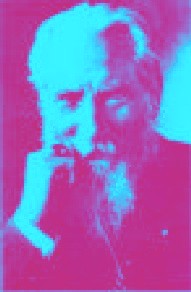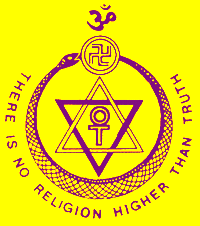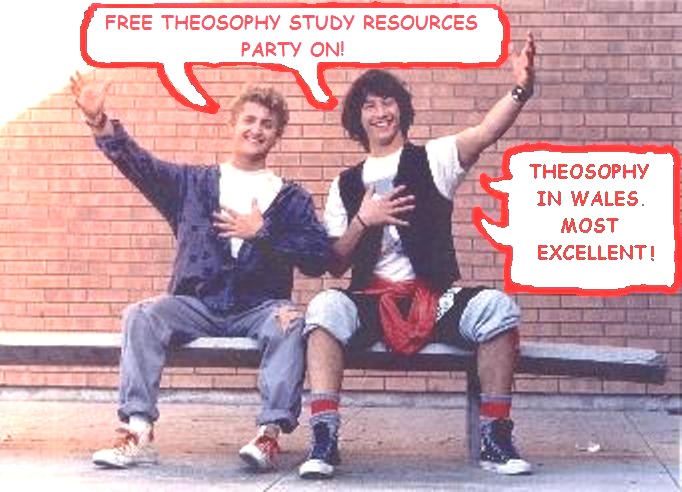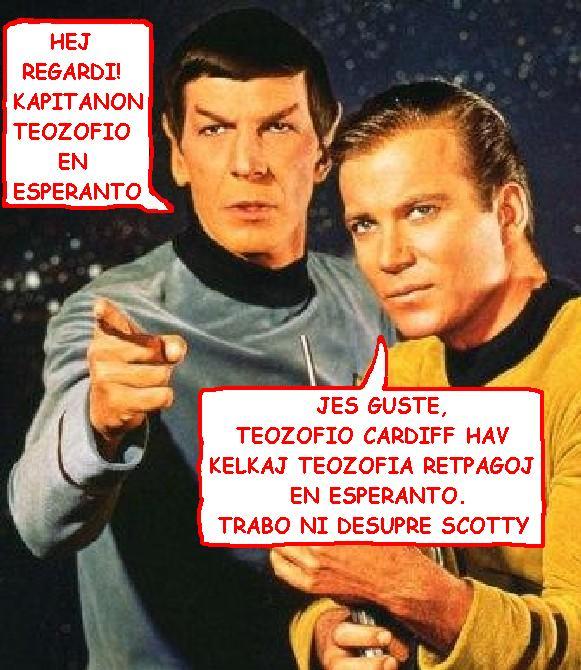A FREE INTRO TO THEOSOPHY
An Outline of Theosophy
By
Charles Webster Leadbeater

Death
One of the
most important practical results of a thorough comprehension of Theosophical
truth is the entire change which is necessary brings about in our attitude
towards death. It is impossible for us to calculate the vast amount of utterly
unnecessary sorrow and terror and misery which mankind in the aggregate has
suffered simply from its ignorance and superstition with regard to this one
matter of death. There is among us a mass of false and foolish belief along
this line which has worked untold evil in the past and is causing indescribable
suffering in the present, and its eradication would be one of the greatest
benefits that could be conferred upon the human race.
This benefit
the Theosophical teaching at once confers on those who, from their study of
philosophy in past lives, now find themselves able to accept it. It robs death
forthwith of all its terror and much of its sorrow, and enables us to see it in
its true proportions and to understand its place in the scheme of our
evolution.
While death
is considered as the end of life, as the gateway into a dim but fearful unknown
country, it is not unnaturally regarded with much misgiving, if
not with
positive terror. Since, in spite of all religious teaching to the contrary this
has been the view universally taken in the western world, many
grisly
horrors have sprung up around it, and have become matters of custom,
thoughtlessly obeyed by many who should know better.
All the
ghastly paraphernalia of woe – the mutes, the plumes, the black velvet, the
crape, the mourning garments, the black-edged note paper –all these are nothing
more than advertisements of ignorance on the part of those who employ
them. The man
who begins to understand what death is at once puts aside all this masquerade
as childish folly, seeing that to mourn over the good fortune of his friend
merely because it involves for himself the pain of apparent separation from
that friend, becomes, as soon as it is recognised, a
display of selfishness.
He cannot avoid
feeling the wrench of the temporary separation, but he can avoid allowing his
own pain to become a hindrance to the friend who has passed on. He knows that
there can be no need to fear or to mourn over death, whether it comes to
himself or to those whom he loves. It has come to them all often before, so
that there is nothing unfamiliar about it. Instead of representing it as a
ghastly king of terrors, it would be more accurate and more sensible to symbolise it as an angel bearing a golden key to admit us
to the glorious realms of the higher life.
He realises very definitely that life is continuous, and that
the loss of the physical body is nothing more than the casting aside of a
garment which in no way changes the real man who is the wearer of the garment.
He sees that death is simply a promotion from a life which is more than
half-physical to one which is wholly astral, and therefore very much superior.
So, for
himself he unfeignedly welcomes it, and when it comes
to those whom he loves, he recognises at once the
great advantage for them, even though he cannot feel a certain amount of
selfish regret that he should be temporarily separated from them.
But he knows
also that this separation is in fact only apparent, and not real. He knows that
the so-called dead are near him still, and that he has only to cast off
temporarily his physical body in sleep, in order to stand side by side with
them and commune with them as before. He
sees clearly that the world is one and that the same Divine laws rule the whole
of it, whether it be visible or invisible to the physical sight. Consequently
he has no feeling of nervousness or strangeness in passing from one part of it
to the other, and no sort of uncertainty as to what he will find on the other
side of the veil.
The whole of
the unseen world is so clearly and fully mapped out for himthrough
the work of the Theosophical investigators that it is well known to him as the
physical life, and thus he is prepared to enter upon it without hesitation
whenever it may be best for his evolution. For full details of the various
stages of this higher life we must refer the reader to the books specially
devoted to this subject. It is sufficient here to say that the conditions into
which the man passes are precisely those which the man passes are precisely
those which he has made for himself. The thoughts and desires which he has
encouraged within himself during earth-life take form as definite living
entities hovering round him and reacting upon him until the energy which he poured
into them is exhausted.
When such
thoughts and desires have been powerful and persistently evil, the companions
so created may indeed be terrible; but happily such cases form a very small
minority among the dwellers in the astral world. The worst that the
ordinary man
of the world usually provides for himself after death is a useless and
unutterably wearisome existence, void of all rational interests – the natural
sequence of a life wasted in self-indulgence, triviality, and gossip here on
earth.
To this
weariness active suffering may under certain conditions be added. If a man
during earth-life has allowed strong physical desire to obtain a mastery over
him – if, for example, he has become a slave to such a vice as avarice,
sensuality, or drunkenness – he has laid up for himself much purgatorial
suffering after death. For in losing the physical body he in no way loses these
desires and passions; they remain as vivid as ever – nay, they are even more
active when they have no longer the heavy particles of dense matter to set in
motion.
What he does
lose is the power to gratify these passions; so that they remain as torturing,
gnawing desires, unsatisfied and unsatisfiable. It
will be
seen that
this makes a very real hell for the unfortunate man, though of course only a
temporary one, since in process of time such desires must burn themselves out,
expending their energy in the very suffering which they produce.
A terrible
fate, truly; yet there are two points which we should bear in mind with regard
to it. First, that the man has not only brought it on himself, but has
determined its intensity and it duration for himself. He has allowed this
desire to
reach a certain strength during earth-life, and now he has to meet it and
control it.
If during physical
life he has made efforts to repress or check it, he will have just so much the
less difficulty in conquering it now. He has
created for
himself the monster with which now he has to struggle; whatever strength his
antagonist possesses is just what he has given it. Therefore, his fate is not
imposed upon him from without, but is simply of his own making.
Secondly, the
suffering which he thus brings upon himself is the only way of escape for him.
If it were possible for him to avoid it, and to pass through the astral life
without this gradual wearing away of the lower desires, what would be the
result?
Obviously
that he would enter upon his next physical life entirely under the domination
of these passions. He would be a born drunkard, a sensualist, a miser; and long
before it would be possible to teach him that he ought to try to control such
passions they would have grown far too strong for control – they would have
enslaved him, body and soul, and so another life would be thrown away, another
opportunity would be lost. He would enter thus upon a vicious circle from which
there appears no escape, and his evolution would be indefinitely delayed.
The Divine
scheme is not thus defective. The
passion exhausts itself during the astral life, and the man returns to physical
existence without it. True, the weakness of mind which allowed passion to
dominate him is still there; true also, he has made for himself for this new
life an astral body capable of expressing exactly the same passions as before,
so that it would not be difficult for him to resume his old evil life. But the
ego, the real man, has had a terrible lesson, and assuredly he will make every
effort to prevent his lower manifestation from repeating that mistake, from
falling again under the sway of that passion.
He has still
the germs of it within him, but if he has deserved good and wise parents they
will help to develop the good in him and check the evil, the germs will remain unfructified and will atrophy, and so in the next life
after that they will not appear at all.
So by slow degrees man conquers his evil qualities, and evolves virtues
to replace them.
On the other
hand, the man who is intelligent and helpful, who understands the conditions of
this non-physical existence and takes the rouble to
adapt himself to them and make the most of them, opening before him a splendid
vista of
opportunities
both for acquiring fresh knowledge and for doing useful work. He discovers that
life away from this dense body has a vividness and brilliancy to which all
earthly enjoyment is as moonlight unto sunlight, and that through his
clear
knowledge and calm confidence the power of the endless life shines out upon all
those around him.
He may become
a centre of peace and joy unspeakable to hundreds of his fellow men, and may do
more good in a few years of that astral existence than ever he could have done
in the longest physical life. He is well
aware too, that there lies before him another and still grander stage of this
wonderful post-mortem life. Just as by his desires and his lower thoughts he
has made for himself the surroundings of his astral life, so has he by his
higher thought and his nobler aspirations made for himself a life in the
heaven-world.
For heaven is
not a dream, but a living and glorious reality. Not a city far away beyond the
stars, with gates of pearl and streets of gold, reserved for the habitation of
a favoured few, but a state of consciousness into
which every man
will pass
during the interval between lives on earth. Not an eternal abiding-place truly, but a condition of bliss indescribable
lasting through many centuries. Not even that alone. For although it contains
the reality which underlies all the best and most spiritual ideas of heaven
which have been propounded in various
religions, yet it must by no means be considered from that view only.
It is a realm
of nature which is of exceeding importance to us – a vast and splendid world of
vivid life in which we are living now, as well as in the periods intervening
between physical incarnations. It is only our lack of development , only the
limitation imposed upon us by this robe of flesh, that prevents us from fully realising that all glory of the brightest heaven is about
us here and now, and that influences flowing from that world are ever playing
upon us, if we will only understand and receive them.
Impossible as
this may seem to the man of the world, it is the plainest of realities to the occultist; and to those who have not
yet grasped this
fundamental
truth we can but repeat the advice given by the Buddhist teacher: - “Do not
complain and cry and pray, but open your eyes and see.” The light is all about
you, if you would only cast the bandage from your eyes and look. It is so
wonderful, so
beautiful, so far beyond what any man has dreamt of or prayed for, and it is
for ever and ever.” (“The Soul of the People “, p. 163).
When the
astral body, which is the vehicle of the lower thought and desire, has gradually
been worn away and left behind, the man finds himself inhabiting that higher
vehicle of finer matter which we have called the mental body. In this vehicle
he is able to respond to the vibrations which reach him from the corresponding
matter in the external world – the matter of the mental plane.
His time of
purgatory is over, the lower part of his nature has burnt itself away, and now
there remain only the higher thoughts and aspirations which he has poured forth
during earth-life.
These cluster
round him, through the medium of which he is able to respond to certain types
of vibration in this refined matter.
These thoughts which surround him are the powers by which he draws upon the
wealth of the heaven world. This mental plane is a reflection of the Divine
Mind – a storehouse of infinite extent from which the person enjoying heaven is
able to draw just according to the power of his own thoughts and aspirations
generated during the physical and astral life.
All religions
have spoken of the bliss of Heaven, yet few of them have put before us with
sufficient clearness this leading idea which alone explains
rationally
how for all alike such bliss is possible – which is, the keynote of the
conception – the fact that each man makes his own heaven by selection from the
ineffable splendours of the Thought of God Himself. A
man decides for himself both the length and the character of his heaven-life by
the causes which he himself generates during his earth-life; therefore, he
cannot but have exactly the amount which
he has deserved and exactly the quality of joy which is best suited to his
idiosyncrasies.
This is a
world in which every being must, from the very fact of his consciousness there,
be enjoying the highest spiritual bliss of which he is capable – a world whose
power of response to his aspirations is limited only by his capacity to aspire.
Further details as to the astral life will be found in the Astral Plane; the
heaven life is described in The Devachanic Plane, and information about both is
also given in Death and After, and in
The Other Side of Death.
For more info on Theosophy
Try these
Cardiff Theosophical Society meetings
are informal
and there’s always a
cup of tea afterwards
The
Cardiff Theosophical Society Website
The
National Wales Theosophy Website
Dave’s
Streetwise Theosophy Boards
This is for
everybody not just people in Wales
Theosophy Cardiff’s Instant Guide to Theosophy
General pages about Wales, Welsh History
and The History of Theosophy in Wales
Teosofia en Cardiff (Página en Español)
One Liners & Quick Explanations
The Most Basic Theosophy Website in the Universe
If you run a Theosophy Study
Group you can use
this as an introductory handout
The
South of Heaven Guide to
Theosophy and Devachan
The
preparation of this Website
Theosophy Cardiff Nirvana Pages
The Spiritual Home of Urban Theosophy
The Earth Base for Evolutionary Theosophy
National
Wales Centre for Theosophy
Blavatsky
Wales Theosophy Group
______________________
_______________________
Theosophy Cardiff Cancels its Affiliation
to
the Adyar Based Theosophical Society
and becomes an independent body within
the Worldwide Theosophical Movement
Theosophy Birmingham (England)
The Birmingham Annie Besant Lodge
Theosophy Cardiff has links with the
__________________
The Theosophy Cardiff
Glastonbury Pages
The Theosophy Cardiff Guide to
The Theosophy Cardiff Guide to
The Theosophy Cardiff Guide to
The Terraced Maze of Glastonbury Tor
Glastonbury and
Joseph of Arimathea
The Grave of King Arthur & Guinevere
Views of Glastonbury High Street
The Theosophy Cardiff Guide to
__________________
Camberley, Surrey, England GU15 2LF
Concerns about the fate of the
wildlife as
Tekels Park is to be Sold to a
Developer
Concerns are raised about the fate of
the
wildlife as The Spiritual Retreat,
Tekels Park in Camberley, Surrey,
England is to be sold to a developer.
Tekels Park is a 50 acre woodland
park,
purchased
for the Adyar Theosophical
It doesn’t require a Diploma in Finance
and even someone with
a Diploma in
Astral Travel will know that this is a
bad time economically
to sell Tekels Park
In addition to concern about the
park,
many are worried about the future
of the Tekels Park
Deer as they
Confusion as the Theoversity
moves out of
Tekels Park to Southampton, Glastonbury &
Chorley in Lancashire while the leadership claim
that the Theosophical
Society will carry on using
Tekels Park despite its sale to a developer
Anyone planning a “Spiritual” stay at
the
Tekels Park Guest House should be
aware of the sale.
Future
of Tekels Park Badgers in Doubt
Party On!
Tekels Park Theosophy NOT
Tekels Park & the Loch Ness Monster
A Satirical view
of the sale of Tekels Park
in Camberley,
Surrey to a developer
The Toff’s Guide to the Sale of
Tekels Park
What the men in
top hats have to
say about the sale
of Tekels Park
____________________
Classic
Introductory Theosophy Text
A Text Book of
Theosophy By C W Leadbeater
What Theosophy Is From the Absolute to Man
The Formation of a Solar System The Evolution of Life
The Constitution of Man After Death Reincarnation
The Purpose of Life The Planetary Chains
The Result of Theosophical Study
An Outstanding
Introduction to Theosophy
By a student of
Katherine Tingley
Elementary Theosophy Who is the Man? Body and Soul
Body, Soul and Spirit Reincarnation Karma
Preface to the American Edition Introduction
Occultism and its Adepts The Theosophical Society
First Occult Experiences Teachings of Occult Philosophy
Later Occult Phenomena Appendix
Preface
Theosophy and the Masters General Principles
The Earth Chain Body and Astral Body Kama – Desire
Manas Of
Reincarnation Reincarnation Continued
Karma Kama Loka
Devachan
Cycles
Arguments Supporting Reincarnation
Differentiation Of Species Missing Links
Psychic Laws, Forces, and Phenomena
Psychic Phenomena and Spiritualism
Karma Fundamental Principles Laws: Natural and Man-Made The Law of Laws
The Eternal Now
Succession
Causation The Laws of Nature A Lesson of The Law
Karma Does Not Crush Apply This Law
Man in The Three Worlds Understand The Truth
Man and His Surroundings The Three Fates The Pair of Triplets Thought, The Builder
Practical Meditation Will and Desire
The Mastery of Desire Two Other Points
The Third Thread Perfect Justice
Our Environment
Our Kith and Kin Our Nation
The Light for a Good Man Knowledge of Law The Opposing Schools
The More Modern View Self-Examination Out of the Past
Old Friendships
We Grow By Giving Collective Karma Family Karma
National Karma
India’s Karma
National Disasters
Try these if you are looking
for a
local Theosophy Group or
Centre
UK Listing of Theosophical Groups
Please tell us about your UK Theosophy Group
Worldwide Directory of Theosophical Links
General pages
about Wales, Welsh History
and The History of
Theosophy in Wales
Wales is a
Principality within the United Kingdom
and has an eastern
border with England. The land
area is just over 8,000
square miles. Snowdon in
North Wales is the
highest mountain at 3,650 feet.
The coastline is almost
750 miles long. The population
of Wales as at the 2001 census is 2,946,200.
__________________________________________
into categories and
presented according to relevance of website.




